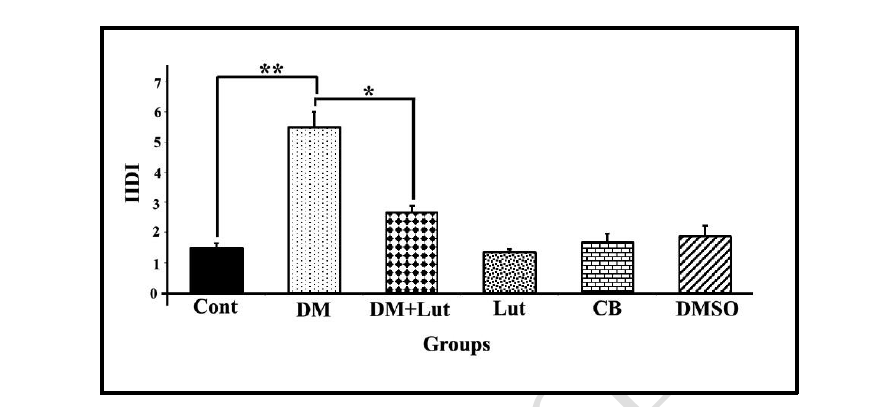Luteolin mitigates hippocampal damage in a rat model of streptozotocin-induced diabetes
DOI:
https://doi.org/10.17305/bb.2025.12305Keywords:
Diabetes mellitus, luteolin, hippocampus, neurodegeneration, oxidative stress, endoplasmic reticulum stressAbstract
Diabetes mellitus (DM) is a chronic metabolic disorder that poses a serious threat to human health by causing long-term damage to various vital organs. It leads to insulin resistance and disrupts carbohydrate, fat, and protein metabolism. This study aimed to investigate the protective effects of luteolin (Lut) against diabetes-induced damage in the hippocampus of rats, using immunohistochemical, histopathological, biochemical, and molecular approaches. Lut [20 μg/kg, intraperitoneally (i.p.)] was administered to counteract hippocampal damage induced by diabetes, which was experimentally triggered using streptozotocin at a dose of 50 mg/kg (i.p.). The experiment lasted 28 days and included 48 rats divided into six groups of eight: Control, DM, citrate buffer (solvent), DM+Lut, Lut, and dimethyl sulfoxide (solvent). In the DM group, there was a decrease in Bcl-2 gene expression and an increase in the expression levels of Bax, caspase-3, cytochrome c, activating transcription factor-6, and inositol-requiring enzyme-1, compared to the DM+Lut group. Histological analysis revealed greater neuronal degeneration, neuroinflammation, and apoptosis in the DM group than in the DM+Lut group. Biochemical analysis also supported these findings, as indicated by increased oxidative stress index values. These results suggest that Lut mitigates the toxic effects of oxidative and endoplasmic reticulum stress, enhances antioxidant defenses, and supports hippocampal function. The findings demonstrate Lut’s potential to prevent diabetes-induced hippocampal damage. Consequently, further research is strongly recommended to explore Lut as a therapeutic agent for diabetic neurodegeneration.
Citations
Downloads

Downloads
Published
Issue
Section
Categories
License
Copyright (c) 2025 Omur Gulsum Deniz, Hayriye Soytürk, Aydın Him, Dilek Sağir, Ebru Annaç

This work is licensed under a Creative Commons Attribution 4.0 International License.









